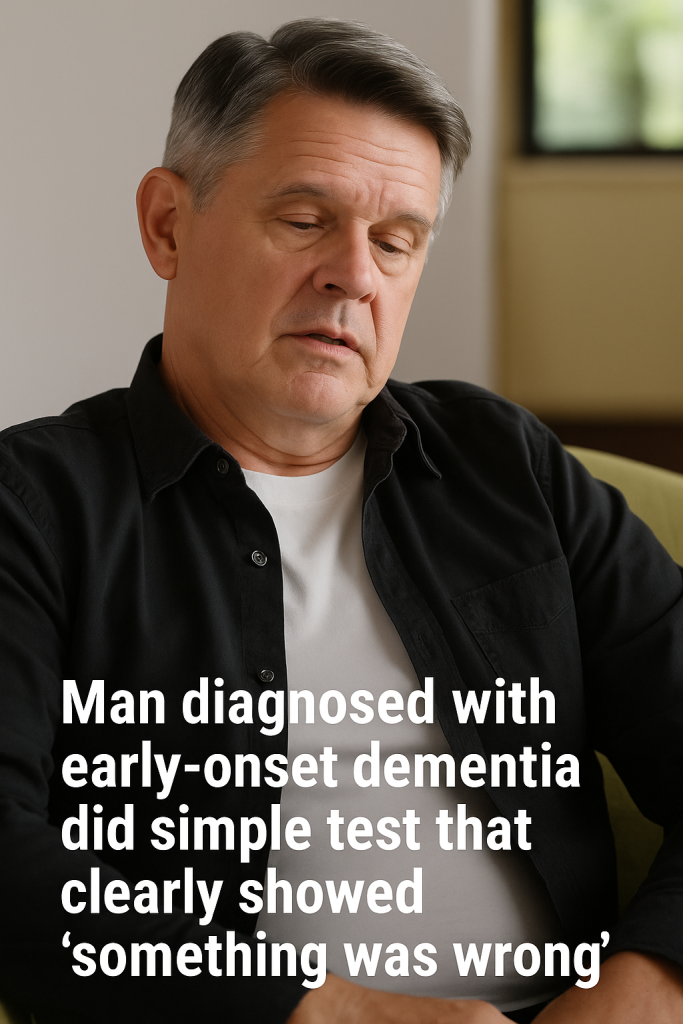At just 45 years old, James Carter’s life took an unexpected and sobering turn when a simple test he performed on himself uncovered early-onset dementia—an illness often misunderstood, misdiagnosed, or caught too late.
James’ story, recently shared on social media, underscores the subtle symptoms many experience but often dismiss as everyday forgetfulness or stress. His experience sheds light on how small changes can be a critical early warning and how simple, accessible tests might prompt earlier medical attention.
“I wasn’t losing my mind overnight,” James explained in a heartfelt message. “It was the little things—misplacing keys, struggling to find words, a fog that rolled in during conversations. I thought maybe I was just tired or distracted.”
The turning point came when James took a widely recommended quick cognitive test at home, designed to detect early signs of memory and executive function loss. The results showed concerning irregularities that didn’t align with normal aging, urging him to seek professional evaluation.
Following a battery of clinical assessments, James was diagnosed with early-onset dementia, a form of the disease that affects people typically younger than 65. This diagnosis placed him among a smaller but significant group of individuals facing dementia while still in their prime working years.
What makes early-onset dementia particularly challenging is its subtle and gradual onset. Symptoms can be easily mistaken for anxiety, depression, or simple memory lapses. James’ description resonates with many: increased forgetfulness, difficulty focusing, trouble with everyday planning, and a disconcerting sense of confusion amid routine tasks.
Medical experts emphasize the importance of awareness and early detection. “There is growing recognition that early diagnosis can fundamentally change the trajectory of care, enabling better symptom management and planning,” noted a neurological specialist familiar with such cases.
James’ story also emphasizes the value of self-monitoring tools. Simple cognitive tests—often digital or paper-based—evaluate various mental functions like memory recall, language, attention, and problem-solving. While they are not diagnostic on their own, they serve as valuable indicators prompting timely professional intervention.
Since his diagnosis, James has become an advocate for public education about early-onset dementia and the subtle signs many overlook. He encourages others experiencing similar symptoms to trust their instincts and seek medical advice promptly.
“If my story helps even one person catch this earlier, then sharing it is worth every vulnerable moment,” he said. His message is clear: paying attention to those subtle changes, performing simple tests when something feels off, and pushing for answers can save critical time.
As dementia research progresses, stories like James’ highlight the urgent need for better awareness and accessible screening tools. Early detection not only opens doors to support but also fosters understanding of a disease that affects millions worldwide—regardless of age.
For readers who might recognize similar symptoms in themselves or loved ones, health professionals recommend consulting qualified medical providers promptly. Early diagnosis can make a lasting difference in managing the disease’s impact.
James Carter’s candid reflection serves as a powerful reminder: subtle symptoms are often the first signals from the mind, and listening to them can change lives.



